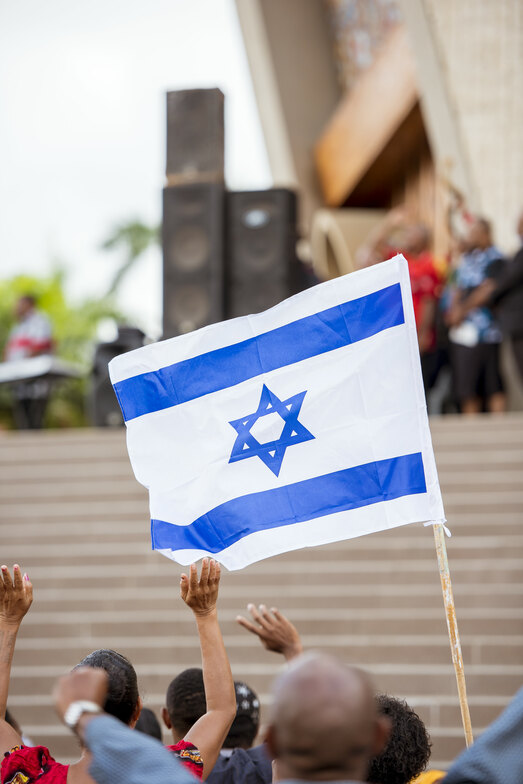Cosmic Geography


Understanding Cosmic Geography: How Ancient Israel Viewed the Spiritual World
The concept of "cosmic geography" might sound strange, but it provides crucial insight into how ancient Israelites understood their relationship with God and the surrounding nations. This worldview, rooted in Deuteronomy 32, reveals a spiritual reality that shaped the entire Old Testament narrative.
What is the Deuteronomy 32 Worldview?
According to Deuteronomy 32, Yahweh disinherited the nations and assigned them to lesser spiritual beings (elohim), while keeping Israel as His own inheritance. This wasn't just political geography—it was cosmic geography. Ancient Israelites understood that they were constantly engaged in spiritual warfare, with Yahweh as the Most High God fighting against the gods of other nations.
In this worldview, only Israel was considered holy ground because it belonged to Yahweh. The territories of other nations belonged to other spiritual beings, creating clear battle lines in what could be described as a cosmic turf war for the planet.
Why Did David Fear Being Driven from Israel?
This cosmic geography helps explain some puzzling passages in Scripture. When David fled from King Saul, he made a remarkable statement that often confuses modern readers. He complained that being driven from Israel meant being told to "go serve other gods."
David wasn't ignorant about God's omnipresence. Rather, he understood that being expelled from "the inheritance of Yahweh" meant leaving the only place where he could properly worship the one true God. At that time, all other lands were under the authority of other gods. David's distress wasn't about being separated from the Ark of the Covenant or the Tabernacle—it was about being expelled from Yahweh's holy land.
Why Did Naaman Want Two Mule-Loads of Dirt?
Another puzzling story becomes clear through this lens. When Naaman, the Syrian commander, was healed of leprosy by the prophet Elisha, he made an unusual request. After declaring that there was no God except in Israel, he asked for two mule-loads of dirt from Israel.
This wasn't strange superstition—it was theological strategy. Naaman viewed Israel's land as holy ground, Yahweh's territory. By taking dirt back to Syria, he could worship Yahweh on Yahweh's own soil, even while living in the land belonging to the god Rimmon. The dirt was his theological statement of faith and his means of keeping his vow to worship only the true God.
What Do the Princes in Daniel 10 Represent?
Daniel 10 provides another example of this cosmic geography in action. A supernatural being tells Daniel that he was delayed 21 days by "the prince of Persia" and would later fight against this prince, with only Michael (Israel's prince) helping him.
These aren't human rulers—they're spiritual beings assigned to geographical territories. The "prince of Persia" and "prince of Greece" represent the spiritual powers behind those nations, while Michael serves as Israel's spiritual prince.
How Did This Worldview Influence Paul's Ministry?
This understanding shaped Paul's theology and ministry approach. In Acts 17, Paul explains that God "determined allotted periods and boundaries of their dwelling place" for all nations. Paul understood that God had disinherited the nations at Babel but intended to reclaim them through the gospel.
Paul's terminology for spiritual warfare—principalities, powers, authorities, dominions, thrones—all refer to geographical domains of spiritual rulership. When he writes about our struggle against "spiritual forces of wickedness in the heavenly places," he's describing the ongoing cosmic battle for territory.
What Changed After Jesus' Victory?
The resurrection of Jesus fundamentally altered this cosmic geography. Paul declares in Ephesians that God seated Christ "far above all rule and authority and power and dominion." All these territorial spiritual beings are now under Christ's authority.
This means that wherever believers go, they carry holy ground with them. The presence of God's Spirit makes any place holy ground. Unlike Naaman, who needed to carry dirt from Israel, Christians carry the presence of the Most High God wherever they go.
Life Application
Understanding cosmic geography should transform how you view your daily life and interactions. You are not just a person moving through neutral territory—you are a representative of the Most High God, carrying His presence into every space you enter.
This week, challenge yourself to live with the awareness that where you are is holy ground. Your presence, empowered by God's Spirit, has the potential to make every place better. Whether you're at work, school, or in your community, you represent the kingdom of God in territories that may be influenced by other spiritual forces.
Consider these questions as you apply this truth:
- How would your behavior change if you truly believed that your presence makes a place holy ground?
- In what areas of your life do you need to engage in spiritual warfare through prayer rather than just trying to convince people through argument?
- How can you better represent God's kingdom in the specific geographical and social territories where He has placed you?
Remember, this isn't about your own goodness—it's about the good God you serve. His presence with you through the Holy Spirit transforms ordinary places into holy ground, continuing the cosmic battle for hearts and territories that began in the Old Testament and continues today.